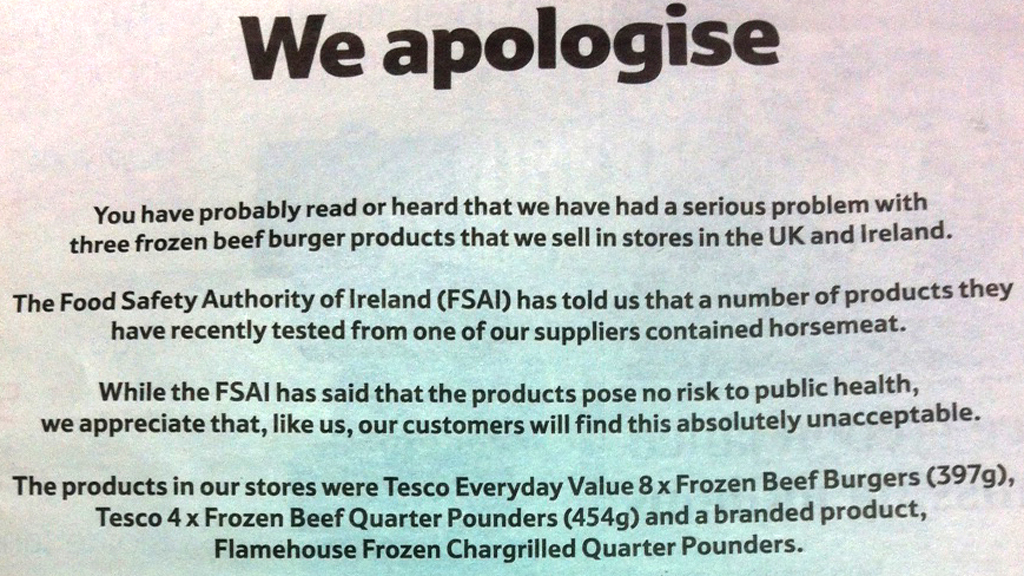Tesco publishes horse meat burger apology
Tesco publishes full page apologies in a number of national newspapers after it emerged the supermarket had been selling beef burgers containing horse meat.

Tesco has promised to refund customers who bought products contaminated with horse meat, and said sorry for the “unacceptable” situation.
Smaller amounts of horse meat were also found in beef burgers sold by Iceland, Lidl and Aldi and Dunnes.
In the advertisement, entitled “We apologise”, Tesco said: “While the FSAI (Food Safety Authority of Ireland) has said that the products pose no risk to public health, we appreciate that, like us, our customers will find this absolutely unacceptable.”
It continues: “We have immediately withdrawn from sale all products from the supplier in question, from all our stores and online… We and our supplier have let you down and we apologise.”
The advert concludes: “So here’s our promise. We will find out exactly what happened and, when we do, we’ll come back and tell you.
“And we will work harder than ever with all our suppliers to make sure this never happens again.”
Tesco promised refunds to customers who had bought the contaminated products, which it identified as Tesco Everyday Value 8 x Frozen Beef Burgers (397g), Tesco 4 x Frozen Beef Quarter Pounders (454g), and a branded product, Flamehouse Frozen Chargrilled Quarter Pounders.
Legal action?
The UK’s food watchdog is considering whether legal action should be taken against companies at the centre of the scandal over horse meat in beef burgers.
The Food Standards Agency (FSA) said they would consult relevant local authorities and the Food Safety Authority of Ireland (FSAI) over whether to take action against any organisations embroiled in the controversy.
After a meeting with food industry representatives, the FSA said they would continue their review of the traceability of the food products identified in an FSAI survey, which uncovered the scandal.
They also said they would try to further understand how the lower levels of horse and pig meat contamination took place and help to carry out a UK-wide study of food authenticity in meat products.
-
Latest news
-
Laughing Boy: New play tells the tragic tale of Connor Sparrowhawk5m

-
Sewage warning system allows some of worst test results to be left off rating system, analysis shows3m

-
Post Office inquiry: Former CEO didn’t like word “bugs” to refer to faulty IT system4m

-
Israeli soldier speaks out on war in Gaza12m

-
PM’s defence spending boost should be ‘celebrated’, says former Armed Forces Minister4m

-




